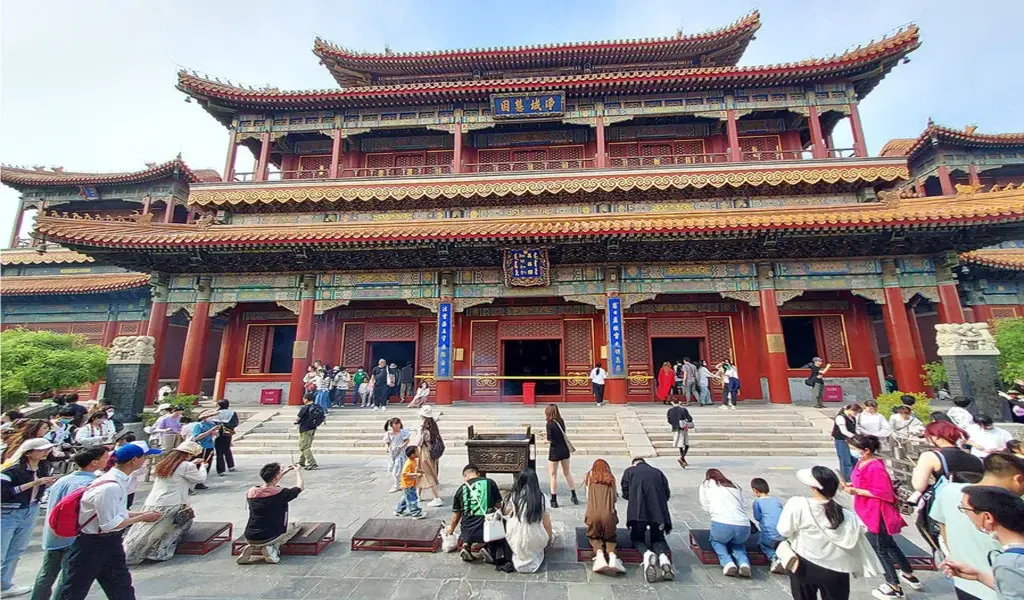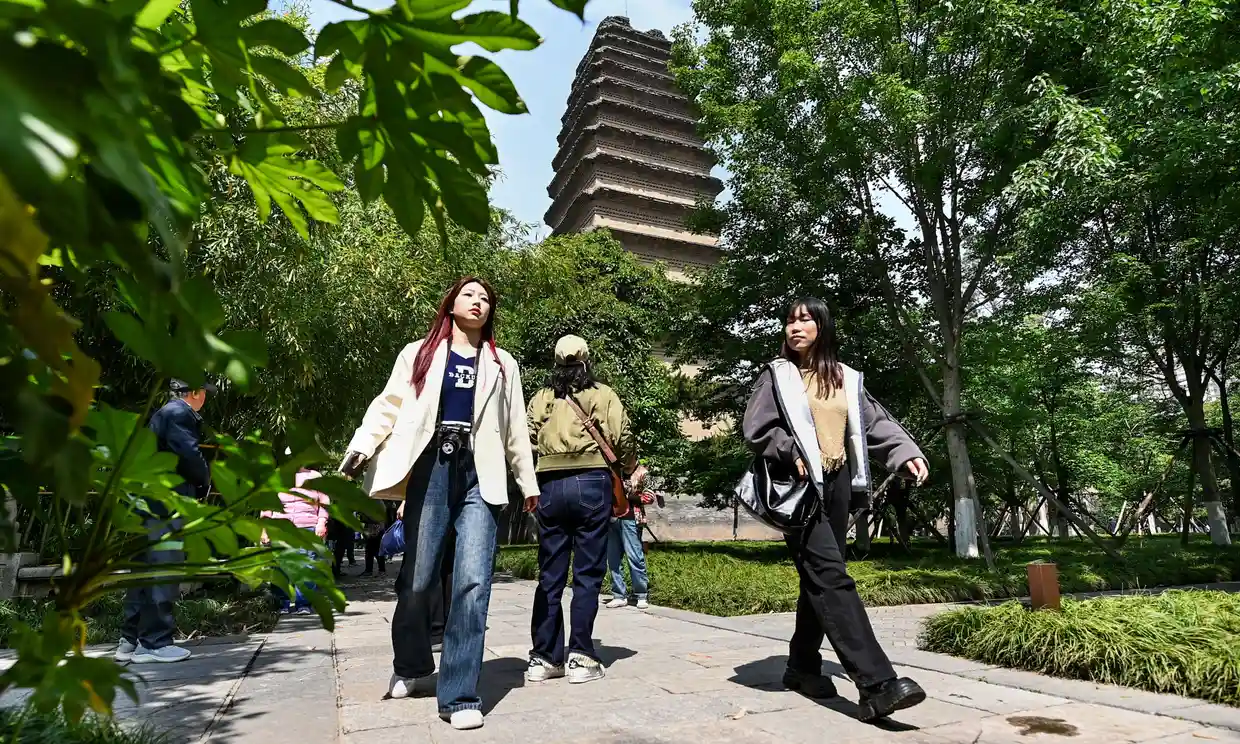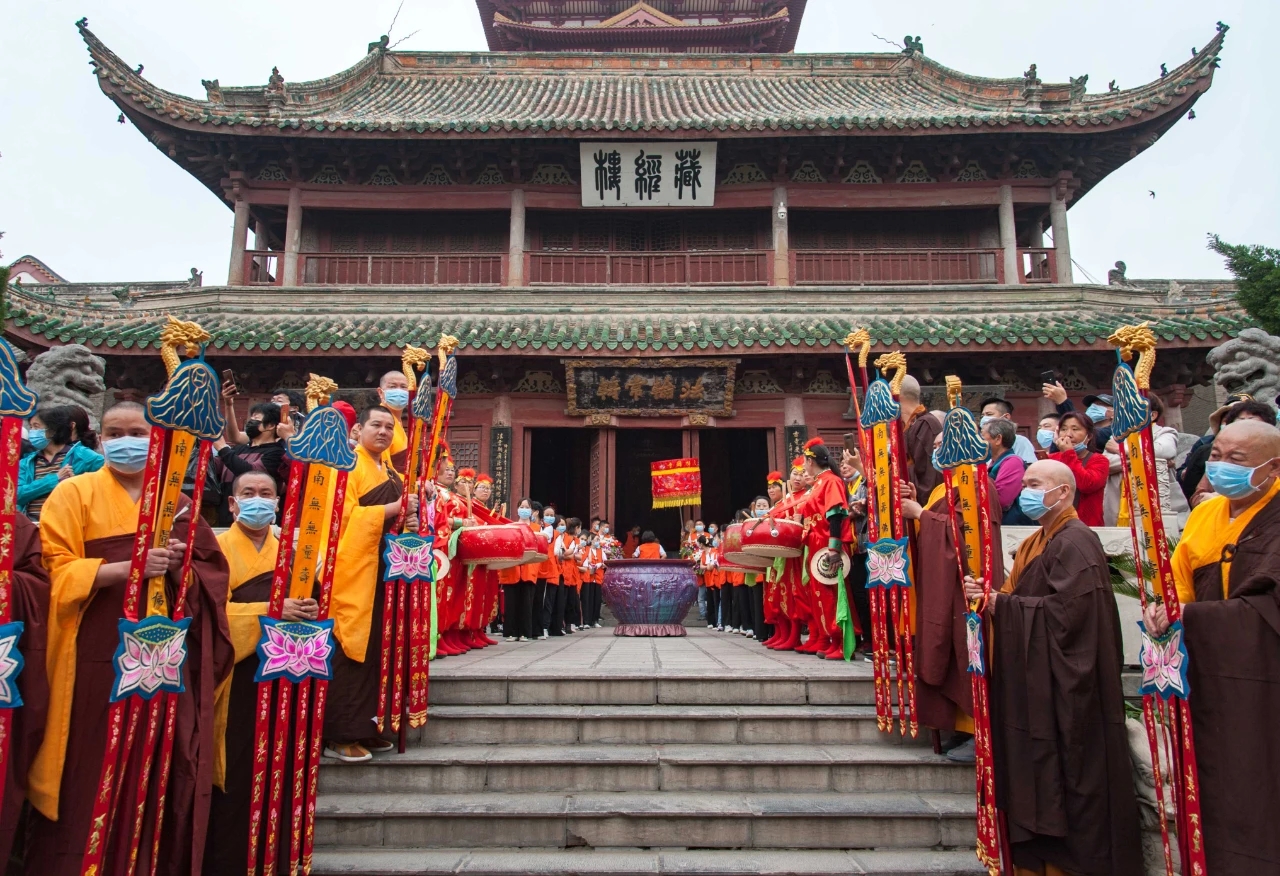News
The Rise of Temple Visits in China: Young Job Seekers Turn to Spiritual Practices

(CTN News) – Amid a challenging economic climate, many young people in China are turning to spiritual practices and seeking divine intervention in their search for employment opportunities.
Recent data from the Chinese travel platform Qunar reveals a significant increase in visitors to temple scenic spots, with a staggering 367% rise in the first quarter of this year compared to the same period in 2022.
While the opening up tourist and cultural destinations after the abandonment of zero-Covid restrictions in December has contributed to this surge, it’s noteworthy that various religious sites are also witnessing a boost in visitor numbers compared to pre-Covid levels.
For instance, Mount Emei in Sichuan, one of the four holy mountains in Chinese Buddhism, welcomed nearly 2.5 million tourists between January and May, representing a more than 50% increase from the same period in 2019.
According to Trip.com, approximately half of the temple visitors in January and February were born after 1990, belonging to the millennial and Gen Z cohorts. These young people face an uphill battle, with record levels of unemployment.
In May, the unemployment rate for 16- to 24-year-olds reached a staggering 20.8%. China’s arduous economic recovery from zero-Covid, coupled with slowdowns in the education, property, and technology sectors, has limited opportunities for fresh graduates, leading many to place more faith in deities than their degrees.
The term “incense-burning youth” has gained traction on social media, referring to young individuals who have turned to spiritual offerings to improve their prospects.
One popular catchphrase reads, “Between going forward and going to work, I choose incense.” This slogan encapsulates a desire for self-improvement and the decision of some young people to reject the rat race entirely. It has become associated with “neijuan” or “involution,” a term describing Chinese youth’s intense pressure, where exerting more effort often feels futile.
The Temple Economy: How Temples Cater to the Spiritual Needs of Job-Seeking Youth
Capitalizing on the demand for spiritual nourishment, many temples now offer meditation courses, on-site cafes, and even psychological counseling centers, as reported by some sources. This trend has been coined the “temple economy” by commentators.
Additionally, Buddhist-style trinkets have gained popularity, with Beijing’s Lama temple clarifying in January that it had not authorized third-party platforms to sell Lama temple bracelets, despite claims made by online vendors.
While the Chinese Communist Party officially promotes atheism, ancient practices remain relevant in times of need.
Professor Emily Baum from the University of California, Irvine, an expert in modern Chinese history, suggests that Chinese youths may visit temples to leave offerings for deceased relatives, hoping to receive favor in the future.
For Chinese worshippers, burning incense represents both a practical and spiritual act. Professor James Miller from Duke Kunshan University in Jiangsu explains that temple visits are not necessarily indicative of religious belief but rather seen as a practical step that anyone can take to seek solutions to their problems.
Although the Chinese Communist Party emphasizes atheism, it also promotes traditional Chinese values rooted in the country’s rich religious history.
This intersection of tradition and modernity shapes China’s relationship with religion and spirituality. The enduring practice of ancestor worship, deeply ingrained in Chinese culture, plays a role in the temple visits of young job seekers.
They hope to garner favor and support for their future endeavors by leaving offerings for deceased relatives.
The rise in temple tourism reflects a broader societal phenomenon in China, where young people grapple with the pressures of unemployment and limited opportunities.
The economic downturn, exacerbated by the challenges posed by the COVID-19 pandemic, has made securing stable employment increasingly difficult for fresh graduates. Faced with this uncertain landscape, many young individuals are seeking solace and guidance through spiritual means.
The temple economy has responded to this growing demand by adapting to the needs of the incense-burning youth. Temples now offer a range of services beyond religious rituals.
Meditation courses provide a means of finding inner peace and clarity in the face of adversity. On-site cafes create spaces for relaxation and reflection. Some reports even suggest the establishment of psychological counseling centers within temples, acknowledging the importance of mental well-being during challenging times.
Furthermore, the popularity of Buddhist-style trinkets among young visitors highlights the desire to carry spiritual symbols and reminders of faith in everyday life.
However, it is crucial to note that while these practices provide comfort and a sense of hope, temple visits are not solely driven by religious devotion. They have become practical steps for individuals seeking guidance, inspiration, and a reprieve from the pressures of society.
China’s complex relationship with religion and spirituality results from its historical and cultural tapestry. The Chinese Communist Party’s promoting atheism is intertwined with preserving traditional values deeply rooted in the country’s religious history.
The Intersection of Tradition and Modernity: China’s Relationship with Religion and Spirituality
This delicate balance allows individuals to navigate between tradition and modernity, seeking support from ancient practices while embracing the opportunities and challenges of contemporary life.
As young people in China continue to grapple with the hardships of unemployment and a challenging economic climate, temple visits provide a refuge, a place to find solace, and a source of inspiration.
In this evolving landscape, the rise of temple tourism among the youth reflects their resilience, adaptability, and unwavering belief in the power of spirituality to shape their futures.































